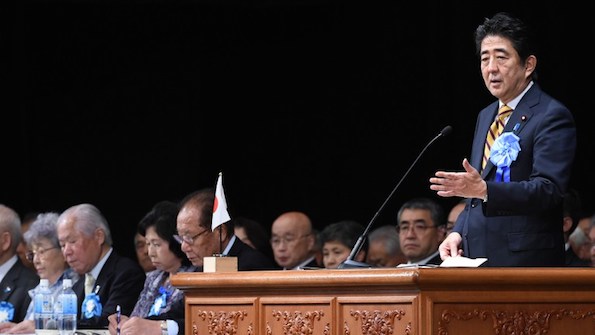
THE bet was bound to be a risky one. In July Japan decided to restart talks with North Korea in the hope of securing the return of citizens kidnapped in the late 1970s and early 1980s. The stakes have since been raised. North Korea’s initial report into the abductees was expected by now, but it revealed last month that the probe would take a year. Japan now finds itself playing diplomatic cat-and-mouse with a regime that has a history of drawing out negotiations in return for concessions.
Predictably, the delay has triggered criticism among conservatives that Japan is being taken for a ride. Fortunately for the government, the country’s prime minister, Shinzo Abe, has ironclad conservative credentials. Mr Abe made his political reputation partly by talking tough on North Korea and insists he knows just the right measure of carrot and stick to apply. He said only recently: "I am convinced I am the one who knows the most about how the North acts."
Not everyone else is persuaded, though. So in a bid to press the North, Japan said this week that it would send a team of officials to Pyongyang on October 27th for an update on the probe. Japan’s government has identified 17 citizens snatched at the height of the cold war—yet the real number may be much higher (about 880, according to estimates by Japan’s National Police Agency). North Korea admits kidnapping 13 and has released five; it says the rest are dead. Securing the safe passage home of some would be a huge political coup for the prime minister. But the stakes for Mr Abe are high.
The families of the abductees, a powerful lobby in Japan, are among the sceptics. Shigeo Iizuka, whose brother was abducted in 1978, says that the Pyongyang visit is "premature". Some American officials also worry that Japan will break ranks against the North in its desperation to solve the abduction issue. Mr Abe has appointed one of his most trusted aides, Junichi Ihara, a former head of the foreign ministry’s North American Bureau, to lead the Pyongyang delegation—and to smooth ruffled feathers in America’s State Department. That strategy appears be working. Marie Harf, its spokesperson, said this week that America backs Japan's bid to settle the issue, but in a way that "takes into account the interest" of its diplomatic partners—a reference to South Korea.
Japan has already partially eased tough sanctions against the North. It has raised the ceiling on money transfers between the two countries from three million to 30 million yen, allowing Japan’s community of Koreans to help out their impoverished homeland. An outright ban on entry of North Korean passport holders has been lifted and some shipments of humanitarian goods, such as food and medicine, have been restarted. But many of the North’s demands, including that Japan rescind a court decision to sell its de-facto embassy in Tokyo, and that it allow permanent ferry services between the two countries, have been swatted away.
Japanese officials are not ruling out an eventual visit to Pyongyang by Mr Abe himself. But they say absolute assurances would be needed that he returns with Japanese citizens. The Abe government believes the North already knows exactly where its citizens are, with or without the fresh probe. Yet after the latest setback, Japan’s top spokesman, Yoshihide Suga, tempered high hopes: "From the beginning we knew the negotiations would not be easy."
(Picture credit: AFP)